Betta fish are admired for their brilliant colors and elegant fins, making them a favorite among fish enthusiasts. To keep them looking their best, it’s important to prevent fin rot, a common but preventable condition. Here’s an easy-to-follow guide with ten straightforward tips to help you keep your betta healthy and their fins in perfect condition.
Keep the Water Clean
Clean water is the most crucial factor in preventing fin rot. Make sure to check the water for cleanliness regularly. You should aim to change 20-25% of the water every week to keep everything fresh and healthy for your betta.
You often see betta fish in super clear water, but the secret is betta fish love tannin water, which is the best environment to prevent disease. This slightly colored water, similar to their natural habitat, helps keep your betta healthy.
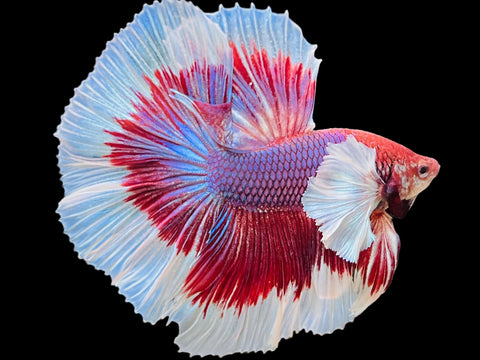
Choose the Right Filter
A good filter keeps the water clean without creating strong currents that could stress your betta. Look for a filter that’s strong enough to clean the water but gentle enough not to bother your fish.
The best filter we recommend is a double sponge filter, which has a place for bacteria to grow and live. These bacteria help clean the fish tank by breaking down waste, making the environment safer for your betta.
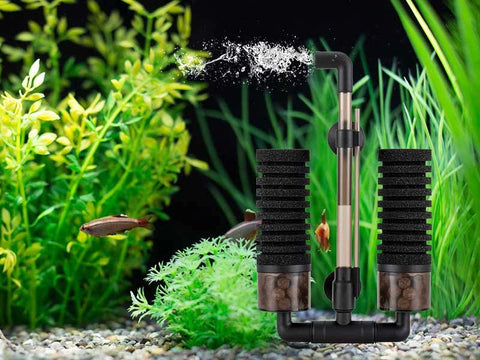
Keep the Water Warm
Maintaining the correct water temperature is vital for your betta's health and well-being. Bettas are tropical fish that require warm water temperatures between 76-82°F (24-28°C) to thrive. Water temperatures outside this range can stress your betta, making them more susceptible to diseases like fin rot.
Warm water not only keeps your betta comfortable but also supports their immune system, helping to ward off diseases.Be vigilant during colder months or sudden temperature drops, as these conditions can quickly affect the water temperature in your aquarium. Regularly monitoring and adjusting the water temperature as needed will provide a stable environment for your betta, reducing stress and the risk of fin rot.
Feed Them Well
A healthy diet helps prevent fin rot. Choose high-quality betta food and give them a little variety now and then, like some brine shrimp or bloodworms. Just make sure not to overfeed them.
We recommend feeding betta fish with live food such as bloodworms, brine shrimp, and daphnia. Most breeders feed their fish with live food, and you shouldn't just feed your betta with pellets. Live food can enhance your betta's health and vitality.
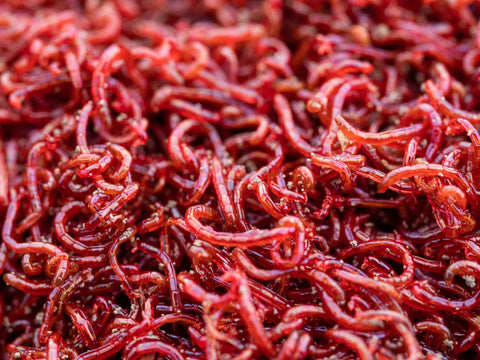
Reduce Stress
Bettas are happier and healthier when they’re not stressed. You can reduce stress by giving them places to hide, like plants or caves, and keeping their environment calm and peaceful.
Remember, tannin water, live plants, and a big tank are the key to keeping your betta stress-free. These elements mimic their natural environment, making them feel more at home and less stressed.
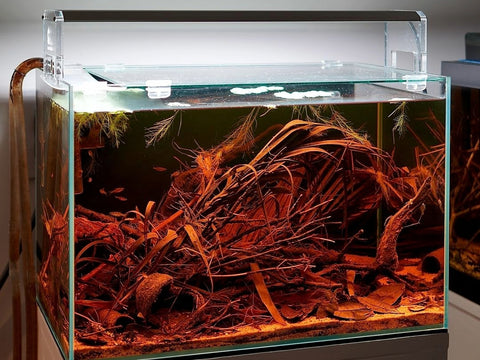
Quarantine New Betta Fish
Whenever you add new fish or plants to your tank, keep them separate for a couple of weeks first. This helps to ensure they don’t bring any diseases into your tank.
Let your betta fish bag float on top of the fish tank for 30-40 minutes to balance the temperature, then open the bag and let it float; your betta fish will swim out if he feels safe and has adapted to the new tank.
Clean the Tank Regularly
A thorough and regular cleaning routine is essential for the health of your betta fish.
Performing a water change of 30-40% weekly is a good practice to remove toxins and keep your betta healthy.In addition to water changes, ensure to vacuum the gravel to remove food waste and other debris that can decompose and pollute the water. Cleaning the decorations and the sides of the tank to remove algae also contribute to a healthier environment.
Use Aquarium Salt With Care
Aquarium salt is a beneficial treatment for preventing and treating various fish diseases, including fin rot. At our farm, we use aquarium salt during winter as a main treatment for parasites if the temperature drops too low.
The secret is to add aquarium salt to your tank every time you perform a water change, but it's crucial to use it sparingly to avoid harming your betta or the plants in your aquarium.

Watch for Signs of Betta Fish Illness
Keeping an eye on your betta for any signs of illness is crucial for early detection and treatment.
Signs of illness include fin rot, laying on the bottom, swimming abnormally, and being less active than usual. Monitoring your betta fish closely will help you recognize when they might be sick and need attention.
Know How to Treat Betta Fin Rot
If your betta does get fin rot, it's important to know how to treat it effectively.
Here's how we do it: move your betta to a hospital tank and lower the water level to make it easier for them to swim up and breathe. Then, add aquarium salt and dried almond leaves to create tannin water, which can help heal and prevent further fin rot.
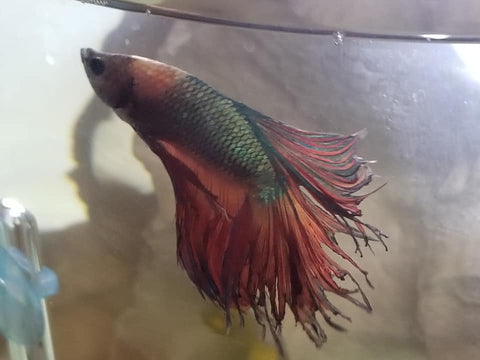
Where to Buy Healthy Betta Fish
Tropicflow is a trusted brand name where you can purchase betta fish. They offer a live arrival guarantee and UPS 2 days air shipping. We will get you the most exotic betta fish you like, ensuring a healthy addition to your aquarium.

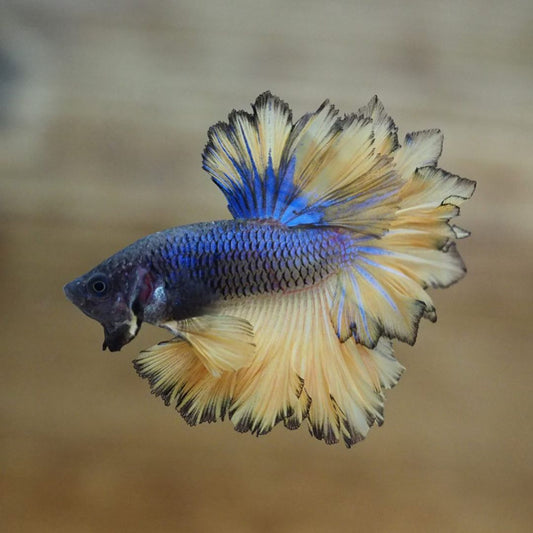


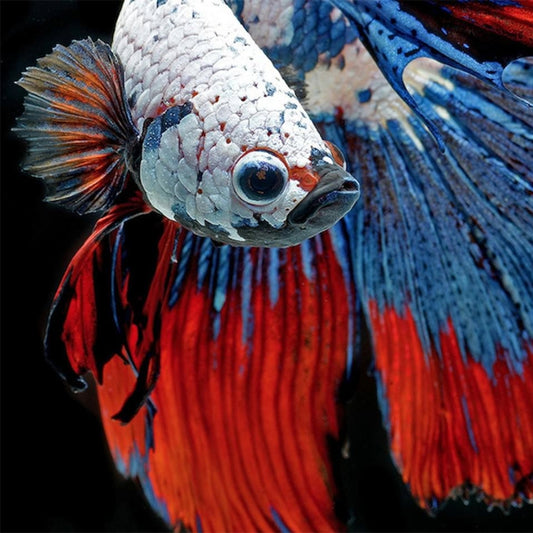

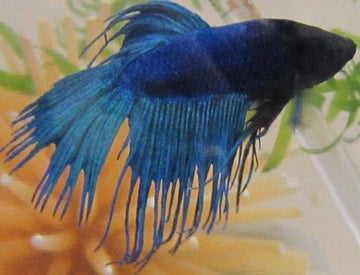

0 comments